In the rapidly evolving landscape of the digital age, the surge in mobile app usage for education is undeniable. With the global shift towards digital learning environments, educators and developers must adapt and thrive. In this blog, we’ll explore the fascinating world of Education Mobile App Development and its monumental impact on enhancing learning experiences. Whether it’s accessibility for students with disabilities or real-time updates and notifications for parents, educational apps are continuously pushing the boundaries of traditional methods.
Challenges in Developing Educational Apps
Developing educational apps comes with its own set of challenges that developers and educators need to overcome to create effective and engaging learning tools. At the forefront is the critical issue of ensuring data privacy and security, a vital concern in today’s digital age where the protection of users’ personal information is paramount. Another significant challenge is creating engaging and user-friendly content. This content should capture the attention of learners and facilitate an enjoyable learning experience. Additionally, addressing the digital divide and ensuring equitable access is essential. It is vital to create apps that are accessible to all students, regardless of their socio-economic background.
Benefits of Educational Apps
Despite the challenges, educational apps offer an array of benefits that make them a valuable tool in modern education. Here are some key advantages that educational apps bring to the table:
- Enhanced learning experiences: With interactive features and gamification elements, educational apps can make learning more engaging and enjoyable for students.
- Personalized learning: Educational apps can adapt to individual learning styles and paces, allowing students to learn at their own pace.
- 24/7 access to learning materials: With educational apps, students can access learning materials anytime and anywhere, making it convenient for busy schedules or remote learning situations.
- Real-time updates and notifications: Parents can stay informed about their child’s progress and receive real-time updates and notifications about assignments, grades, and other important information.
- Cost-effective: Educational apps can often be more cost-effective than traditional textbooks and learning materials, as they offer a wide range of educational content at a lower cost.
- Easy integration with classroom teaching: Many educational apps are designed to complement classroom teaching, making it easier for teachers to incorporate them into their lessons seamlessly.
- Individualized feedback: Educational apps can provide individualized feedback to students, helping them identify areas where they need improvement and offering suggestions for further learning.
- Accessibility: With proper design and development, educational apps can be accessible to all students, regardless of their physical or cognitive abilities.
Educational apps, including those that develop mobile apps, have revolutionized the way we learn and teach. With their interactive features, personalized learning, and accessibility, they have made education more engaging and enjoyable for students. These apps also offer convenience, cost-effectiveness, and real-time updates for parents and teachers, reflecting the latest mobile app development trends.
Key Features of Successful Educational Apps
In the dynamic landscape of education mobile app development, creating an application that stands out requires incorporating several critical features. These include:
User-Friendly Design and Navigation
Ensuring that users can easily find what they’re looking for within the app is paramount. A straightforward, intuitive interface encourages continued use and engagement.
Adaptive Learning Technologies
Incorporating algorithms that adjust the learning path based on the user’s performance can provide a customized learning experience. This personalization is a key benefit of digital learning.
Integration with Existing Educational Systems
To maximize utility, educational apps should seamlessly integrate with school management systems, online resources, and other tools educators and students use.
Analytics and Progress Tracking
Features that allow users to track their progress over time can motivate and guide both students and educators, offering insights into strengths and areas needing improvement.
Multimedia Content
The use of multimedia content, such as videos and images, can make learning more engaging and interactive. This feature is particularly beneficial for visual or auditory learners.
Gamification Elements
Adding game-like elements to educational apps can increase motivation, engagement, and retention of information. Features like badges, levels, and points can provide a fun and competitive learning experience.
Collaborative Features
Group work is an essential part of the educational process, and incorporating collaborative features into apps can facilitate teamwork and communication between students and educators.
The Role of Emerging Technologies
Emerging technologies are set to redefine educational experiences through Education Mobile App Development, offering new ways to engage, instruct, and evaluate.
Impact of AI and Machine Learning on Personalized Education
By analyzing how students learn, these technologies can tailor content, suggest resources, and adjust difficulties in real-time, providing a truly personalized education experience.
Utilizing AR and VR for Immersive Learning Experiences
Augmented Reality (AR) and Virtual Reality (VR) can transform traditional learning materials into interactive, engaging experiences. Imagine dissecting a virtual frog in Biology or walking through ancient Rome in History class.
Future of Blockchain in Secure and Transparent Educational Records
Blockchain technology offers a secure, unchangeable record of academic achievements. It could revolutionize how we store and share educational records, making them easily verifiable and accessible.
The Role of Big Data in Educational Analytics
The use of big data in education can provide valuable insights into student learning patterns, identifying areas for improvement and predicting future performance. Educators can use this data to make informed decisions and personalize learning experiences.
Incorporating these features and technologies into educational apps enhances learning outcomes. It also prepares students for a future where digital fluency is critical. As Education Mobile App Development continues to evolve, we can expect even more innovative approaches to learning. These approaches will leverage the latest technological advances.
Conclusion
The potential of mobile apps to transform educational outcomes is immense. Education Mobile App Development stands at the forefront of this transformation, offering innovative solutions to traditional challenges. By leveraging technology, we can create learning environments that are more accessible, engaging, and effective. As we continue to explore and embrace new advancements, the future of education looks brighter than ever before. So contact us today and let us help you bring your educational app ideas to life!



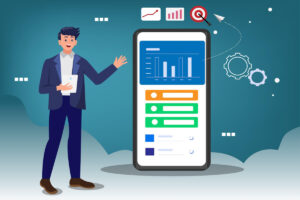
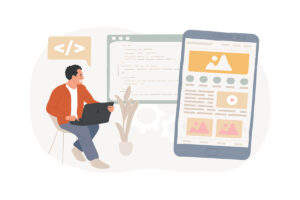

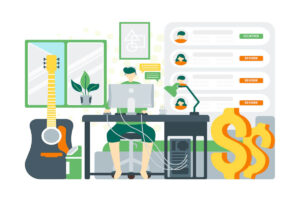
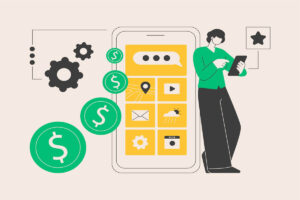
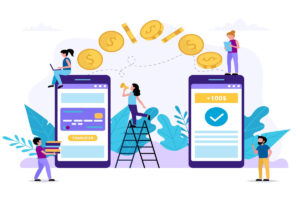


+ There are no comments
Add yours